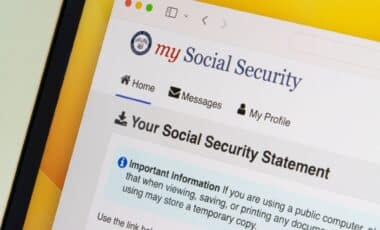Inflation has been on the rise in recent years, with cost of living crisis that has made prices to go up, which have burdened millions of households from payment of bills to buying essential goods and housing.
In a big economic reversal, inflation eventually hit the Bank of England’s 2% target in June for the first time in three years, down from its peak of 11.1% in October 2022. Although this reduction is an encouraging sign, it doesn’t mean a fall back to previous price levels at all but just a decreased pace of increase.
The new Labour government’s manifesto commits itself to addressing this cost of living crisis by tackling its root causes. Liz Kendall, the Secretary of State for Work and Pensions, announced that the Department for Work and Pensions (DWP) will be concentrating on reducing “economic inactivity” and increasing employment through their new initiative ‘Back to Work’.
Here is an overview of financial support for low-income families available this August, as well as important dates for benefits recipients.
Cost of Living Payments: Benefits and Pensions Due in August 2024
Regular Benefit Payments
During August regular benefit and pension payments will be made as normal except for one day which is Monday 26 August, because it is a bank holiday. All payments due on this day will actually be paid on Friday 23 August instead, as it would be the last working day before then. The benefits include:
- Universal Credit
- State Pension
- Pension Credit
- Child Benefit
- Disability Living Allowance
- Personal Independence Payment
- Attendance Allowance
- Carer’s Allowance
- Employment Support Allowance
- Income Support
- Jobseeker’s Allowance
According to Policy in Practice report, about £19bn of benefits remain unclaimed annually. They provide a tool that can be used to estimate your possible entitlement.
Household Support Fund (HSF)
The spring budget extended the Household Support Fund (HSF) by an additional six months beyond the original 31 March deadline. HSF enables local authorities to assist vulnerable households through things like cash grants, supermarket vouchers and assistance with heating bills etc. You can find this support from your local council’s website or End Furniture Poverty’s help finder tool.
Other Sources of Help Available
Budgeting Advance Loans
For those on Universal Credit who experience financial emergencies, the government is offering budgeting advance loans that are interest-free. The repayment period has been pushed out from twelve months to two years. The amounts for these advances are:
- £348 for single individuals
- £464 for couples
- £812 for those with children
Charitable Grants
Several charitable grants exist for people who are in financial difficulty such as the disabled, ill, carers, bereaved, unemployed or students. These grants usually have specific eligibility criteria and offer limited funds. Individual can research available grants at Turn2us charity online tool.
Energy Provider Assistance
A number of energy firms including Scottish Power EDF E.ON and Octopus offer help for customers struggling with their bills. British Gas provides grants up to £2,000 for any energy provider customers if they meet certain requirements, which can be applied for via the British Gas Energy Trust website.
Council Tax Reduction
A complete exemption for council tax may be offered to those who meet certain criteria or qualify for particular kinds of assistance. Local councils can also offer discretionary discounts to individuals who are in dire need of financial support. To apply, one has to visit the government’s website.
Free Childcare
Currently, working parents in the UK receive 30 hours of free child care per week for children aged between three and four. Starting from 1 April, this will increase to 15 hours of free child care for two-year-olds as well.
Applications must be made online, with eligibility reviewed every three months. Also, working parents can apply for tax-free childcare where they get back 20p in every £0.80 spent on childcare up to a maximum of £500 per annum.
Future expansions include:
- September 2024: 15 hours of free childcare for children from nine months old.
- September 2025: 30 hours of free childcare for all children under five.
There is a high possibility that some major changes will be done by the new government regarding the benefits and pensions, but it would take years before being completely implemented among its citizens. Planned changes often go through consultation processes, which could last several months or even years.









